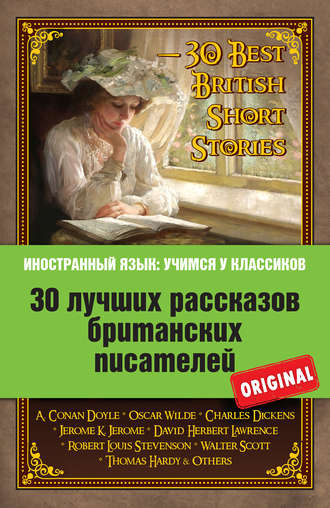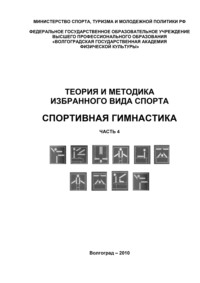
Полная версия
30 лучших рассказов британских писателей / 30 Best British Short Stories
‘You mean the foot of the street, Upjohn,’ I said; for such is the way to Drury Lane.
‘No; I mean the top. The man was running west.’
‘East.’
‘West.’
I smiled, which so annoyed him that he bet me two to one in sovereigns. The bet could have been decided most quickly by asking William a question, but I thought, foolishly doubtless, that it might hurt his feelings, so I watched him leave the club. The possibility of Upjohn’s winning the bet had seemed remote to me. Conceive my surprise, therefore when William went westward.
Amazed, I pursued him along two streets without realising that I was doing so. Then curiosity put me into a hansom. We followed William, and it proved to be a three-shilling fare, for, running when he was in breath and walking when he was out of it, he took me to West Kensington.
I discharged my cab, and from across the street watched William’s incomprehensible behaviour. He had stopped at a dingy row of workmen’s houses, and knocked at the darkened window of one of them. Presently a light showed. So far as I could see, someone pulled up the blind and for ten minutes talked to William. I was uncertain whether they talked, for the window was not opened, and I felt that, had William spoken through the glass loud enough to be heard inside, I must have heard him too. Yet he nodded and beckoned. I was still bewildered when, by setting off the way he had come, he gave me the opportunity of going home.
Knowing from the talk of the club what the lower orders are, could I doubt that this was some discreditable love-affair of William’s? His solicitude for his wife had been mere pretence; so far as it was genuine, it meant that he feared she might recover. He probably told her that he was detained nightly in the club till three.
I was miserable next day, and blamed the deviled kidneys for it. Whether William was unfaithful to his wife was nothing to me, but I had two plain reasons for insisting on his going straight home from his club: the one that, as he had made me lose a bet, I must punish him; the other that he could wait upon me better if he went to bed betimes.
Yet I did not question him. There was something in his face that – Well, I seemed to see his dying wife in it.
I was so out of sorts that I could eat no dinner. I left the club. Happening to stand for some time at the foot of the street, I chanced to see the girl Jenny coming, and – no; let me tell the truth, though the whole club reads: I was waiting for her.
‘How is William’s wife to-day?’ I asked.
‘She told me to nod three times,’ the little slattern replied; ‘but she looked like nothing but a dead one till she got the brandy.’
‘Hush, child!’ I said, shocked. ‘You don’t know how the dead look.’
‘Bless yer,’ she answered, ‘don’t I just! Why, I’ve helped to lay ’em out. I’m going on seven.’
‘Is William good to his wife?’
‘Course he is. Ain’t she his missis?’
‘Why should that make him good to her?’ I asked, cynically, out of my knowledge of the poor. But the girl, precocious in many ways, had never had any opportunities of studying the lower classes in the newspapers, fiction, and club talk. She shut one eye, and, looking up wonderingly, said:
‘Ain’t you green – just!’
‘When does William reach home at night?’
‘’Tain’t night; it’s morning. When I wakes up at half dark and half light, and hears a door shutting, I know as it’s either father going off to his work or Mr. Hicking come home from his.’
‘Who is Mr. Hicking?’
‘Him as we’ve been speaking on – William. We calls him mister, ’cause he’s a toff. Father’s just doing jobs in Covent Gardens, but Mr. Hicking, he’s a waiter, and a clean shirt every day. The old woman would like father to be a waiter, but he hain’t got the ’ristocratic look.’
‘What old woman?’
‘Go ’long! that’s my mother. Is it true there’s a waiter in the club just for to open the door?’
‘Yes; but–’
‘And another just for to lick the stamps? My!’
‘William leaves the club at one o’clock?’ I said, interrogatively.
She nodded. ‘My mother,’ she said, ‘is one to talk, and she says Mr. Hicking as he should get away at twelve, ’cause his missis needs him more’n the gentlemen need him. The old woman do talk.’
‘And what does William answer to that?’
‘He says as the gentlemen can’t be kept waiting for their cheese.’
‘But William does not go straight home when he leaves the club?’
‘That’s the kid.’
‘Kid!’ I echoed, scarcely understanding, for, knowing how little the poor love their children, I had asked William no questions about the baby.
‘Didn’t you know his missis had a kid?’
‘Yes; but that is no excuse for William’s staying away from his sick wife,’ I answered, sharply. A baby in such a home as William’s, I reflected, must be trying; but still – besides, his class can sleep through any din.
‘The kid ain’t in our court,’ the girl explained. ‘He’s in W., he is, and I’ve never been out of W.C.; leastwise, not as I knows of.’
‘This is W. I suppose you mean that the child is at West Kensington? Well, no doubt it was better for William’s wife to get rid of the child–’
‘Better!’ interposed the girl. ‘’Tain’t better for her not to have the kid. Ain’t her not having him what she’s always thinking on when she looks like a dead one?’
‘How could you know that?’
‘’Cause,’ answered the girl, illustrating her words with a gesture, ‘I watches her, and I sees her arms going this way, just like as she wanted to hug her kid.’
‘Possibly you are right,’ I said, frowning; ‘but William had put the child out to nurse because it disturbed his night’s rest. A man who has his work to do–’
‘You are green!’
‘Then why have the mother and child been separated?’
‘Along of that there measles. Near all the young ’uns in our court has ’em bad.’
‘Have you had them?’
‘I said the young ’uns.’
‘And William sent the baby to West Kensington to escape infection?’
‘Took him, he did.’
‘Against his wife’s wishes?’
‘Na-o!’
‘You said she was dying for want of the child?’
‘Wouldn’t she rayther die than have the kid die?’
‘Don’t speak so heartlessly, child. Why does William not go straight home from the club? Does he go to West Kensington to see it?’
‘’Tain’t a hit, it’s an ’e. Course he do.’
‘Then he should not. His wife has the first claim on him.’
‘Ain’t you green! It’s his missis as wants him to go. Do you think she could sleep till she knowed how the kid was?’
‘But he does not go into the house at West Kensington?’
‘Is he soft? Course he don’t go in, fear of taking the infection to the kid. They just holds the kid up at the window to him, so as he can have a good look. Then he comes home and tells his missis. He sits foot of the bed and tells.’
‘And that takes place every night? He can’t have much to tell.’
‘He has just.’
‘He can only say whether the child is well or ill.’
‘My! He tells what a difference there is in the kid since he seed him last.’
‘There can be no difference!’
‘Go ’long! Ain’t a kid always growing? Haven’t Mr. Hicking to tell how the hair is getting darker, and heaps of things beside?’
‘Such as what?’
‘Like whether he larfed, and if he has her nose, and how as he knowed him. He tells her them things more ’n once.’
‘And all this time he is sitting at the foot of the bed?’
‘’Cept when he holds her hand.’
‘But when does he get to bed himself?’
‘He don’t get much. He tells her as he has a sleep at the club.’
‘He cannot say that.’
‘Hain’t I heard him? But he do go to his bed a bit, and then they both lies quiet, her pretending she is sleeping so as he can sleep, and him ’feard to sleep case he shouldn’t wake up to give her the bottle stuff.’
‘What does the doctor say about her?’
‘He’s a good one, the doctor. Sometimes he says she would get better if she could see the kid through the window.’
‘Nonsense!’
‘And if she was took to the country.’
‘Then why does not William take her?’
‘My! you are green! And if she drank port wines.’
‘Doesn’t she?’
‘No; but William, he tells her about the gentlemen drinking them.’
On the tenth day after my conversation with this unattractive child I was in my brougham, with the windows up, and I sat back, a paper before my face lest anyone should look in. Naturally, I was afraid of being seen in company of William’s wife and Jenny, for men about town are uncharitable, and, despite the explanation I had ready, might have charged me with pitying William. As a matter of fact, William was sending his wife into Surrey to stay with an old nurse of mine, and I was driving her down because my horses needed an outing. Besides, I was going that way at any rate.
I had arranged that the girl Jenny, who was wearing an outrageous bonnet, should accompany us, because, knowing the greed of her class, I feared she might blackmail me at the club.
William joined us in the suburbs, bringing the baby with him, as I had foreseen they would all be occupied with it, and to save me the trouble of conversing with them. Mrs. Hicking I found too pale and fragile for a workingman’s wife, and I formed a mean opinion of her intelligence from her pride in the baby, which was a very ordinary one. She created quite a vulgar scene when it was brought to her, though she had given me her word not to do so, what irritated me even more than her tears being her ill-bred apology that she ‘had been ‘feared baby wouldn’t know her again.’ I would have told her they didn’t know any one for years had I not been afraid of the girl Jenny, who dandled the infant on her knees and talked to it as if it understood. She kept me on tenter-hooks by asking it offensive questions, such as, ‘Oo know who give me that bonnet?’ and answering them herself, ‘It was the pretty gentleman there;’ and several times I had to affect sleep because she announced, ‘Kiddy wants to kiss the pretty gentleman.’
Irksome as all this necessarily was to a man of taste, I suffered even more when we reached our destination. As we drove through the village the girl Jenny uttered shrieks of delight at the sight of flowers growing up the cottage walls, and declared they were ‘just like a music-’all without the drink license.’ As my horses required a rest, I was forced to abandon my intention of dropping these persons at their lodgings and returning to town at once, and I could not go to the inn lest I should meet inquisitive acquaintances. Disagreeable circumstances, therefore, compelled me to take tea with a waiter’s family – close to a window too, through which I could see the girl Jenny talking excitedly to the villagers, and telling them, I felt certain, that I had been good to William. I had a desire to go out and put myself right with those people.
William’s long connection with the club should have given him some manners, but apparently his class cannot take them on, for, though he knew I regarded his thanks as an insult, he looked them when he was not speaking them, and hardly had he sat down, by my orders, than he remembered that I was a member of the club, and jumped up. Nothing is in worse form than whispering, yet again and again, when he thought I was not listening, he whispered to Mrs. Hicking, ‘You don’t feel faint?’ or ‘How are you now?’ He was also in extravagant glee because she ate two cakes (it takes so little to put these people in good spirits), and when she said she felt like another being already the fellow’s face charged me with the change. I could not but conclude, from the way Mrs. Hicking let the baby pound her, that she was stronger than she had pretended.
I remained longer than was necessary, because I had something to say to William which I knew he would misunderstand, and so I put off saying it. But when he announced that it was time for him to return to London, – at which his wife suddenly paled, so that he had to sign to her not to break down, – I delivered the message.
‘William,’ I said, ‘the head waiter asked me to say that you could take a fortnight’s holiday just now. Your wages will be paid as usual.’
Confound them! William had me by the hand, and his wife was in tears before I could reach the door.
‘Is it your doing again, sir?’ William cried.
‘William!’ I said, fiercely.
‘We owe everything to you,’ he insisted. ‘The port wine–’
‘Because I had no room for it in my cellar.’
‘The money for the nurse in London–’
‘Because I objected to being waited on by a man who got no sleep.’
‘These lodgings–’
‘Because I wanted to do something for my old nurse.’
‘And now, sir, a fortnight’s holiday!’
‘Good-bye, William!’ I said, in a fury.
But before I could get away Mrs. Hicking signed to William to leave the room, and then she kissed my hand. She said something to me. It was about my wife. Somehow I – What business had William to tell her about my wife?
They are all back in Drury Lane now, and William tells me that his wife sings at her work just as she did eight years ago. I have no interest in this, and try to check his talk of it; but such people have no sense of propriety, and he even speaks of the girl Jenny, who sent me lately a gaudy pair of worsted gloves worked by her own hand. The meanest advantage they took of my weakness, however, was in calling their baby after me. I have an uncomfortable suspicion, too, that William has given the other waiters his version of the affair; but I feel safe so long as it does not reach the committee.
Walter Besant
The Solid Gold Reef Company, Limited
Act I
‘You dear old boy,’ said the girl, ‘I am sure I wish it could be, with all my heart, if I have any heart.’
‘I don’t believe you have,’ replied the boy gloomily.
‘Well, but, Reg, consider; you’ve got no money.’
‘I’ve got five thousand pounds. If a man can’t make his way upon that he must be a poor stick.’
‘You would go abroad with it and dig, and take your wife with you – to wash and cook.’
‘We would do something with the money here. You should stay in London, Rosie.’
‘Yes. In a suburban villa, at Shepherd’s Bush, perhaps. No, Reg, when I marry, if ever I do – I am in no hurry – I will step out of this room into one exactly like it.’ The room was a splendid drawing-room in Palace Gardens, splendidly furnished. ‘I shall have my footmen and my carriage, and I shall–’
‘Rosie, give me the right to earn all these things for you!’ the young man cried impetuously.
‘You can only earn them for me by the time you have one foot in the grave. Hadn’t I better in the meantime marry some old gentleman with his one foot in the grave, so as to be ready for you against the time you come home? In two or three years the other foot, I dare say, would slide into the grave as well.’
‘You laugh at my trouble. You feel nothing.’
‘If the pater would part, but he won’t; he says he wants all his money for himself, and that I’ve got to marry well. Besides, Reg’ – here her face clouded and she lowered her voice – ‘there are times when he looks anxious. We didn’t always live in Palace Gardens. Suppose we should lose it all as quickly as we got it. Oh!’ she shivered and trembled. ‘No, I will never, never marry a poor man. Get rich, my dear boy, and you may aspire even to the valuable possession of this heartless hand.’
She held it out. He took it, pressed it, stooped and kissed her. Then he dropped her hand and walked quickly out of the room.
‘Poor Reggie!’ she murmured. ‘I wish – I wish – but what is the use of wishing?’
Act II
Two men – one young, the other about fifty – sat in the veranda of a small bungalow. It was after breakfast. They lay back in long bamboo chairs, each with a cigar. It looked as if they were resting. In reality they were talking business, and that very seriously.
‘Yes, sir,’ said the elder man, with something of an American accent, ‘I have somehow taken a fancy to this place. The situation is healthy.’
‘Well, I don’t know; I’ve had more than one touch of fever here.’
‘The climate is lovely –’
‘Except in the rains.’
‘The soil is fertile –’
‘I’ve dropped five thousand in it, and they haven’t come up again yet.’
‘They will. I have been round the estate, and I see money in it. Well, sir, here’s my offer: five thousand down, hard cash, as soon as the papers are signed.’
Reginald sat up. He was on the point of accepting the proposal, when a pony rode up to the house, and the rider, a native groom, jumped off and gave him a note. He opened it and read. It was from his nearest neighbour, two or three miles away:
Don’t sell that man your estate. Gold has been found. The whole country is full of gold. Hold on. He’s an assayer. If he offers to buy, be quite sure that he has found gold on your land.
F.G.He put the note into his pocket, gave a verbal message to the boy, and turned to his guest, without betraying the least astonishment or emotion.
‘I beg your pardon. The note was from Bellamy, my next neighbour. Well? You were saying –’
‘Only that I have taken a fancy – perhaps a foolish fancy – to this place of yours, and I’ll give you, if you like, all that you have spent upon it.’
‘Well,’ he replied reflectively, but with a little twinkle in his eye, ‘that seems handsome. But the place isn’t really worth the half that I spent upon it. Anybody would tell you that. Come, let us be honest, whatever we are. I’ll tell you a better way. We will put the matter into the hands of Bellamy. He knows what a coffee plantation is worth. He shall name a price, and if we can agree upon that, we will make a deal of it.’
The other man changed colour. He wanted to settle the thing at once as between gentlemen. What need of third parties? But Reginald stood firm, and he presently rode away, quite sure that in a day or two this planter, too, would have heard the news.
A month later, the young coffee-planter stood on the deck of a steamer homeward bound. In his pocket-book was a plan of his auriferous estate; in a bag hanging round his neck was a small collection of yellow nuggets; in his boxes was a chosen assortment of quartz.
Act III
‘Well, sir,’ said the financier, ‘you’ve brought this thing to me. You want my advice. Well, my advice is, don’t fool away the only good thing that will ever happen to you. Luck such as this doesn’t come more than once in a lifetime.’
‘I have been offered ten thousand pounds for my estate.’
‘Oh! Have you! Ten thousand? That was very liberal – very liberal indeed. Ten thousand for a gold reef!’
‘But I thought as an old friend of my father you would, perhaps–’
‘Young man, don’t fool it away. He’s waiting for you, I suppose, round the corner, with a bottle of fizz, ready to close.’
‘He is.’
‘Well, go and drink his champagne. Always get whatever you can. And then tell him that you’ll see him –’
‘I certainly will, sir, if you advise it. And then?’
‘And then – leave it to me. And, young man, I think I heard, a year or two ago, something about you and my girl Rosie.’
‘There was something, sir. Not enough to trouble you about it.’
‘She told me. Rosie tells me all her love affairs.’
‘Is she – is she unmarried?’
‘Oh, yes! and for the moment I believe she is free. She has had one or two engagements, but, somehow, they have come to nothing. There was the French count, but that was knocked on the head very early in consequence of things discovered. And there was the Boom in Guano, but he fortunately smashed, much to Rosie’s joy, because she never liked him. The last was Lord Evergreen. He was a nice old chap when you could understand what he said, and Rosie would have liked the title very much, though his grandchildren opposed the thing. Well, sir, I suppose you couldn’t understand the trouble we took to keep that old man alive for his own wedding. Science did all it could, but ’twas of no use–’ The financier sighed. ‘The ways of Providence are inscrutable. He died, sir, the day before.’
‘That was very sad.’
‘A dashing of the cup from the lip, sir. My daughter would have been a countess. Well, young gentleman, about this estate of yours. I think I see a way – I think, I am not yet sure – that I do see a way. Go now. See this liberal gentleman, and drink his champagne. And come here in a week. Then, if I still see my way, you shall understand what it means to hold the position in the City which is mine.’
‘And – and – may I call upon Rosie?’
‘Not till this day week – not till I have made my way plain.’
Act IV
‘And so it means this. Oh, Rosie, you look lovelier than ever, and I’m as happy as a king. It means this. Your father is the greatest genius in the world. He buys my property for sixty thousand pounds – sixty thousand. That’s over two thousand a year for me, and he makes a company out of it with a hundred and fifty thousand capital. He says that, taking ten thousand out of it for expenses, there will be a profit of eighty thousand. And all that he gives to you – eighty thousand, that’s three thousand a year for you; and sixty thousand, that’s two more, my dearest Rosie. You remember what you said, that when you married you should step out of one room like this into another just as good?’
‘Oh, Reggie,’ she sank upon his bosom – ‘you know I never could love anybody but you. It’s true I was engaged to old Lord Evergreen, but that was only because he had one foot – you know – and when the other foot went in too, just a day too soon, I actually laughed. So the pater is going to make a company of it, is he? Well, I hope he won’t put any of his own money into it, I’m sure, because of late all the companies have turned out so badly.’
‘But, my child, the place is full of gold.’
‘Then why did he turn it into a company, my dear boy? And why didn’t he make you stick to it? But you know nothing of the City. Now, let us sit down and talk about what we shall do – don’t, you ridiculous boy!’
Act V
Another house just like the first. The bride stepped out of one palace into another. With their five or six thousand a year, the young couple could just manage to make both ends meet. The husband was devoted; the wife had everything that she could wish. Who could be happier than this pair in a nest so luxurious, their life so padded, their days so full of sunshine? It was a year after marriage. The wife, contrary to her usual custom, was the first at breakfast. A few letters were waiting for her – chiefly invitations. She opened and read them. Among them lay one addressed to her husband. Not looking at the address, she opened and read that as well:
Dear Reginald:
I venture to address you as an old friend of your own and school-fellow of your mother’s. I am a widow with four children. My husband was the vicar of your old parish – you remember him and me. I was left with a little income of about two hundred a year. Twelve months ago I was persuaded in order to double my income – a thing which seemed certain from the prospectus – to invest everything in a new and rich gold mine. Everything. And the mine has never paid anything. The company – it is called the Solid Gold Reef Company, is in liquidation because, though there is really the gold there, it costs too much to get it. I have no relatives anywhere to help me. Unless I can get assistance my children and I must go at once – tomorrow – into the workhouse. Yes, we are paupers. I am ruined by the cruel lies of that prospectus, and the wickedness which deluded me, and I know not how many others, out of my money. I have been foolish, and am punished; but those people, who will punish them? Help me, if you can, my dear Reginald. Oh! For… GOD’S… sake, help my children and me.
Help your mother’s friend, your own old friend.‘This,’ said Rosie meditatively, ‘is exactly the kind of thing to make Reggie uncomfortable. Why, it might make him unhappy all day. Better burn it.’ She dropped the letter into the fire. ‘He’s an impulsive, emotional nature, and he doesn’t understand the City. If people are so foolish – What a lot of fibs the poor old pater does tell, to be sure! He’s a regular novelist – Oh! here you are, you lazy boy!’
‘Kiss me, Rosie.’ He looked as handsome as Apollo, and as cheerful. ‘I wish all the world were as happy as you and me. Heigho! some poor devils, I’m afraid –’














